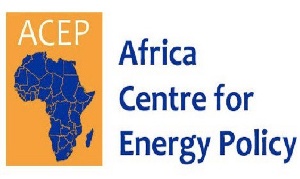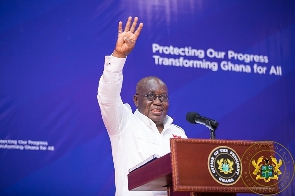 The centre called for an amendment of the National Premix Fuel Regulations, 2016 (L. I. 2233)
The centre called for an amendment of the National Premix Fuel Regulations, 2016 (L. I. 2233)
The Africa Centre for Energy Policy (ACEP), a policy think tank, has called on the government to install a metered fuel dispensers at various landing beaches for proper accountability.
The Centre said the system should replace the Landing Beach Committees (LBC) which had become a tool for partisan politics and inefficient in the distribution of premix fuel.
Centre there called for an amendment of the National Premix Fuel Committee Regulations, 2016 (L. I. 2233) which prescribed the LBCs as the only entities to sell premix fuel.
These are part of recommendations of a report authored by ACEP on the topic: “Resolving the Challenges of Premix Fuel: A Review of Ghana’s Premix Fuel Supply Chain” conducted by ACEP and supported by Oxfam.
The report recommended to the government to monitor the activities of artisanal fishermen to ensure efficient management of fuel purchases of boat owners and map out consumption patterns for proper planning.
It also called on the government to channel the development responsibilities of the License Buying Company (LBC) through the District Assemblies to develop the fishing communities.
The report explained that the duplication of the assemblies’ responsibilities by the LBC often lead to neglect of fishing communities by the assemblies, misappropriation of funds by the LBCs and the use of the LBCs as tools by political agents.
Mr Benjamin Boakye, the Executive Director, ACEP said Ghana in the early 1990s introduced a fuel subsidy to alleviate the challenge of high cost of fuel and difficult economic conditions in the fisheries sector.
However, the introduction of the subsidy brought along challenges, principally, diversion of the product.
Mr Boakye said the subsidy was paid from the price stabilization levy charged on petroleum products in the country, adding that the levy was to stabilize the prices of petroleum products and subsidize the cost of premix fuel.
He said, the increasing demand for subsidies on premix exhausted almost the entire price stabilization levy, stressing that the subsidy could be as high as 70 per cent of the market cost of the fuel and billed the government about US$44.4 million per year.
Statistics from the National Petroleum Authority indicates that between 2000 and 2018, national premix fuel supply has increased from 42 million litres to about 73 million litres with an average annual growth rate of approximately 4 per cent.
In 2017, supply was 91.7 million litres due to extensive smuggling of the product and dropped to 73 million litres in 2018 when such incidence of smuggling became subject of public discussion and stringent monitoring was enforced.
As at the third quarter of 2019, premix fuel supply was about 51 million litres, which is estimated to rise up to about 76 million litres by the end of 2019.












